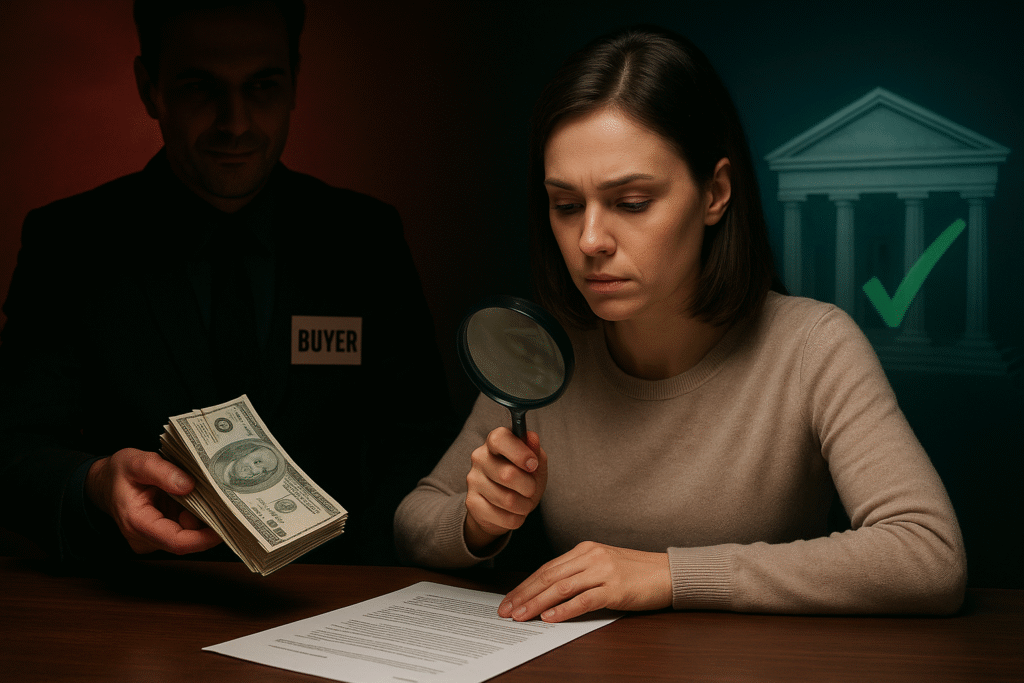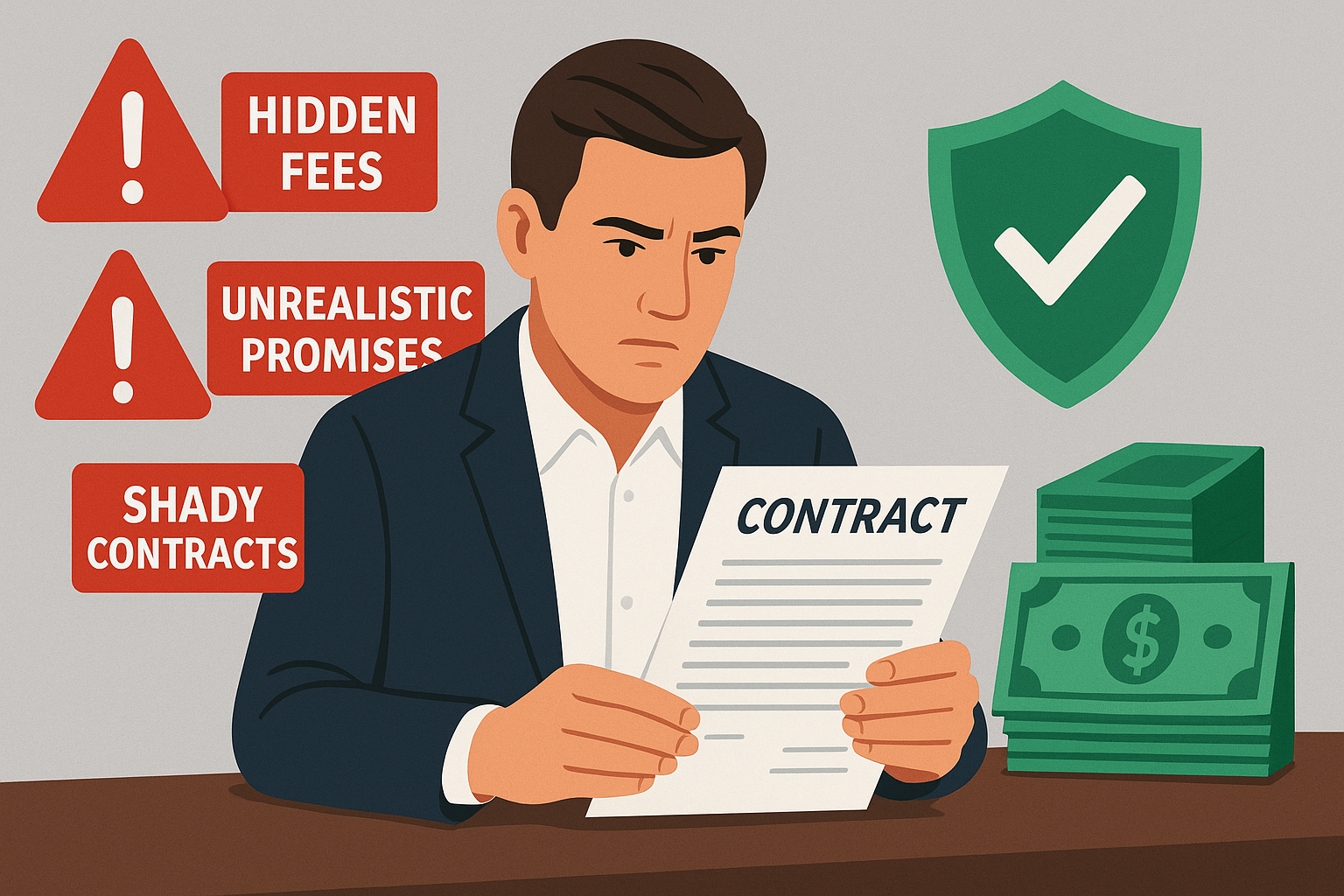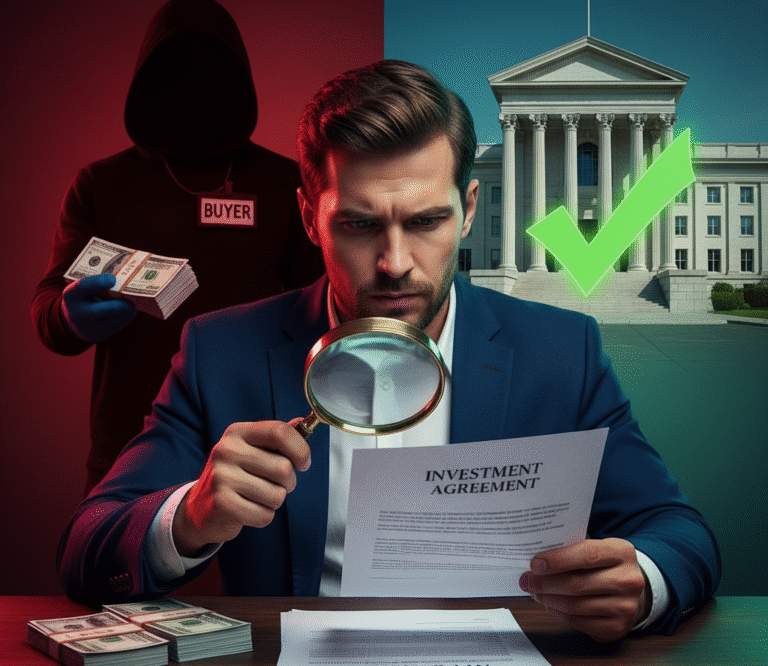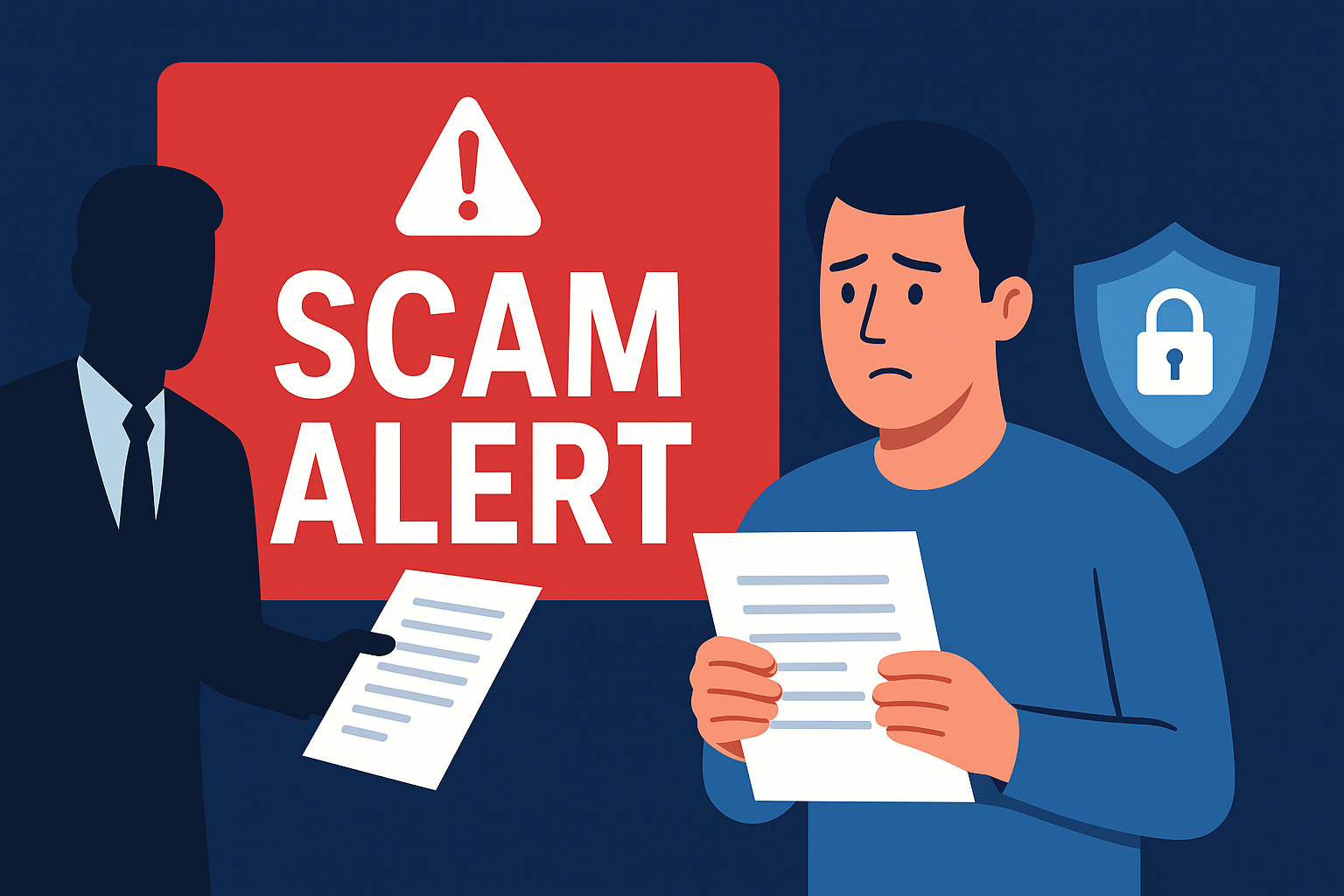The structured settlement market can provide financial relief for individuals looking to sell future payments. However, this industry also attracts fraudulent actors—fake buyers who prey on vulnerable sellers. These scammers use deceptive tactics, false promises, and manipulative contracts to exploit people in need of quick cash.

This comprehensive guide will teach you how to identify fake buyers, recognize their warning signs, and most importantly, protect yourself with legal and financial safeguards.
Why Fake Buyers Are Dangerous
Fake structured settlement buyers are not just a nuisance—they pose serious financial risks. Victims can lose their settlement rights, sign away payments without receiving full compensation, or even become entangled in legal disputes.
Key dangers include:
- Undervalued offers – Fraudulent buyers often lowball sellers with unfair rates.
- Hidden contract clauses – Tricky legal terms that benefit the buyer, not the seller.
- Identity theft – Scammers sometimes steal personal information for other financial crimes.
- No payment guarantee – Sellers risk losing both their settlement and promised cash.
Top Warning Signs of Fake Buyers
Being cautious means knowing the red flags. Fake buyers often display these telltale signs:
- Unlicensed Operations
Legitimate buyers are registered and regulated. Scammers rarely provide verifiable credentials. - High-Pressure Tactics
They rush sellers into quick deals without giving time to review documents. - No Clear Contact Information
Fake buyers may use disposable emails or fake office addresses. - Unrealistic Offers
If a deal sounds “too good to be true,” it usually is. - Avoidance of Legal Procedures
Every structured settlement transfer must go through court approval. Scammers often try to bypass this step.
Steps to Protect Yourself
- Verify Licensing and Accreditation
Always confirm that the company is registered with your state and has a strong reputation with the Better Business Bureau (BBB). - Research Online Reviews and Complaints
Check consumer protection websites to see if others have reported fraud. - Work with an Attorney
A lawyer specializing in structured settlements can review contracts and ensure your rights are protected. - Request Written Documentation
Demand detailed written offers instead of relying on verbal promises. - Confirm Court Approval
Remember: without a judge’s approval, no sale is legitimate. - Protect Your Personal Information
Never provide sensitive data until you’ve verified the buyer’s legitimacy.
What to Do If You Suspect Fraud
- Stop Communication Immediately – Don’t sign or share more information.
- Report the Buyer – File complaints with your state attorney general, the FTC, and consumer protection agencies.
- Seek Legal Help – An attorney can help you cancel fraudulent contracts or recover damages.
- Warn Others – Leave honest reviews online to alert potential victims.
Real-Life Example
In 2023, several sellers in Florida reported losing thousands after signing contracts with a fake buyer who promised instant payouts. The scammer disappeared after collecting sensitive documents. This case highlighted the importance of working only with court-approved, licensed companies.
Selling your structured settlement is a serious financial decision. Protecting yourself from fake buyers means staying alert, doing research, and seeking professional help. With the right precautions, you can safeguard your money and avoid devastating scams.
Remember: If an offer seems too good to be true, it probably is.



